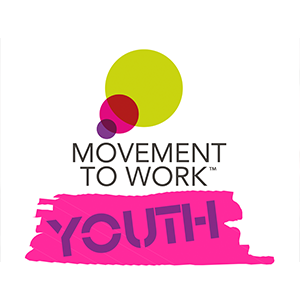Tell me a little about your background and why it was challenging for you to move into work?
My family was evicted from our flat and I ended up in a hostel. I was with a lot of people who were doing anything to make money on the streets. It was tempting to get involved, after all it’s hard when your socio-economic background is not strong. Being involved in crime is a risk that unfortunately youth have been pushed to face to meet their needs. There are many layers to it.
It’s not easy as a young person fending for yourself. It’s like once you had your necessities at your disposal (or maybe you didn’t), having to go food bank, job centre, therapy(and many more services) without letting it knock your confidence/light is very hard.
I knew I could go one of two ways: join them and let my circumstance rule me or try to build a proper career. I chose the latter; I would suffer short term to reap long term success. It was difficult but I knew if I started making money in ways that I shouldn’t, it would be difficult to get out of that. Easy come, easy Go.
So, I got myself into university because at least I had some ‘A’ Levels. Many of those I am with didn’t have any qualifications. Education and support is the fundamental need! However, in my first year I had a mental breakdown and due to lack of the above, I was forced to drop out. The same thing happened to me again when I started another course, so I was still a long way from getting meaningful work in line with my aspirations.
What was it that made you want to change your home life and build a good career for yourself?
I decided that I didn’t want to become a product of my environment. But I had to put that into action.
TalentMatch visited my hostel, it’s an organisation that helps young people aged 18-24 who need extra support to help them along the path to sustainable employment. They signposted me, through an event, to London Youth, a charity and Movement to Work partner, that helps young people improve their lives, supporting youth with opportunities and experiences they would never have unless through them.
I also joined my hostel’s youth panel. This meant that I did some volunteering: setting up events, relaying residents’ needs and co-ordinating projects, for example, outreach within the community. I also spoke to young people in the hostel about how they could work with London Youth or other services to also get back on track. Hardships from being young and alone sets people back but also places you at an advantage ironically.
Movement to Work also asked me to speak about my journey at its social-mobility awards in February.
What are you doing now?
I’m going back to university in September to study sociology and anthropology, but alongside that I’m going to do a part-time course to become a learning and behavioural specialist.
What advice would you give to young people from challenging backgrounds who want to move into work?
Have the determination to find services that will help you. If you’re over 18 they are more difficult to find now but be single-minded about getting help to get you on a career ladder. If you’ve made money on the streets it’s even more difficult to move on but if you have the determination the right thing for yourself you will get there.
I would never have found the volunteering opportunities that have helped me so much but for my relentless determination pushing myself. First and foremost, make sure you’re ok physically, mentally and spiritually. Cliché but true, look after and love yourself!

